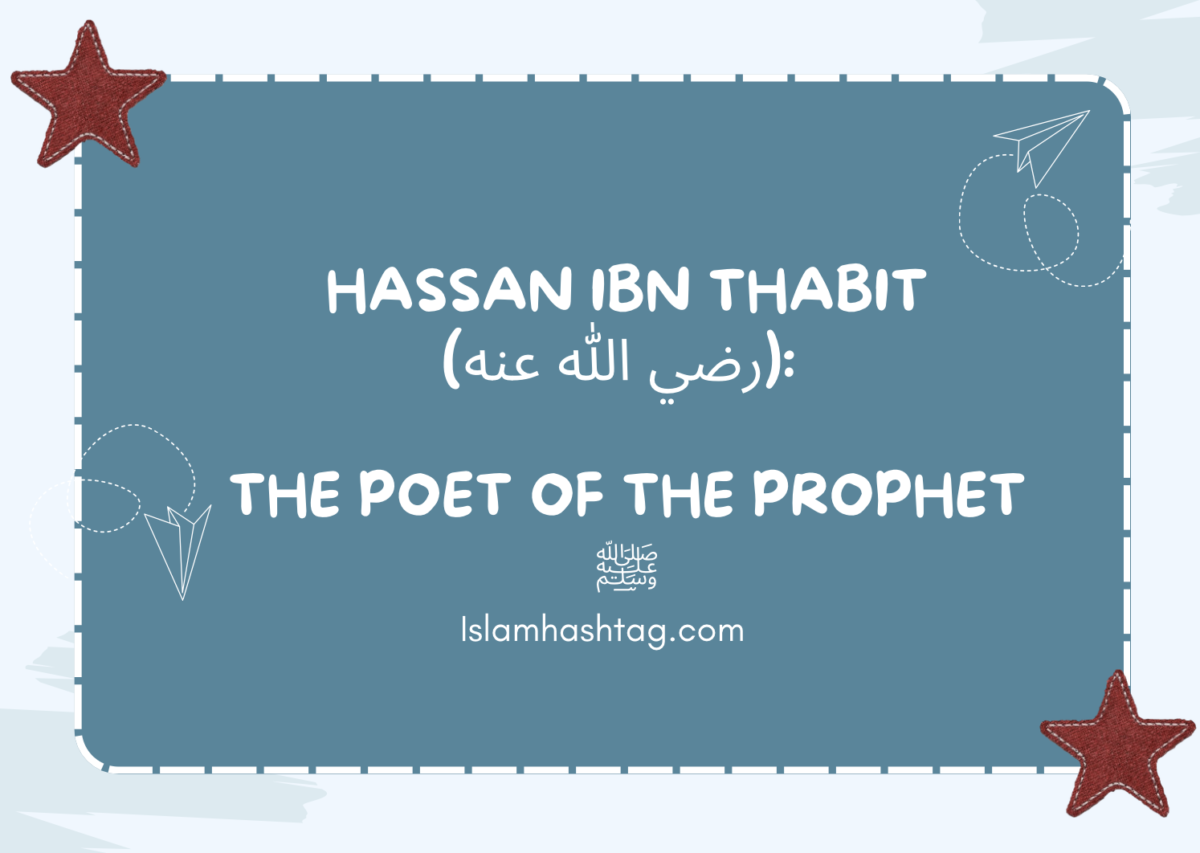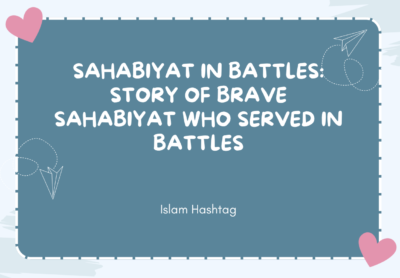Hassan ibn Thabit: The Poet of the Prophet ﷺ
Hassan ibn Thabit ibn al-Mundhir al-Khazraji al-Ansari, Abu al-Walid (radi Allah anhu)(c. 563 CE – c. 674 CE), is remembered as one of the most distinguished companions of the Prophet Muhammad ﷺ and the eloquent “Poet of the Prophet.” His life straddled two eras: the pre-Islamic age of Jahiliyyah and the Islamic age, making him among the mukhadramun—those who lived in both worlds. He spent roughly sixty years in the time of ignorance and another sixty years in Islam.
Early Life and Background
Hassan ibn Thabit (ra)was born in Yathrib (later Madinah) around 60 years before the Prophet’s birth. He grew up in a society marked by tribal rivalries, especially between al-Aws and al-Khazraj, to whom he belonged. His sharp wit and gift for poetry made him the spokesman of his tribe in these conflicts.
Even before Islam, Hassan gained renown as a court poet, celebrated for his praise of kings and rulers. He composed elegant verses for the Ghassanid monarchs of Syria and the Lakhmids of al-Hirah in Iraq, securing a place among the most respected poets of his time. His works reflected strength in satire, majesty in praise, and remarkable skill in imagery and comparison.
Embracing Islam and Serving the Prophet ﷺ
When the Prophet Muhammad ﷺ migrated to Madinah, Hassan ibn Thabit (ra)embraced Islam wholeheartedly. From that moment, his poetry became a weapon in defense of the new faith. He countered the insults and attacks of the Quraysh poets, responded to their satire, and elevated the message of Islam through his eloquent verse.
Though Hassan did not take part in battles due to a physical weakness, his tongue and poetry became his sword. The Prophet ﷺ himself acknowledged his role and prayed for him, saying:
“O Allah, support him with the Holy Spirit (Jibreel) as long as he defends Your Messenger.”
(Sahih al-Bukhari)
Hassan thus became the literary shield of the Prophet ﷺ, praised for his ability to protect the honor of Islam with words.
Literary Style and Contribution
Hassan’s poetry is distinguished by its power, fluency, and clear structure. He was particularly skilled in satire (hijā’), silencing opponents of Islam with biting yet eloquent rebuttals. At the same time, his praise (madīh) reached sublime levels when he spoke of the Prophet ﷺ, depicting him as a guiding light, a bringer of hope, and the noblest of creation.
His poetry often drew on imagery from both the Qur’an and the hadith, reflecting his deep faith and spiritual inspiration. As Abu ‘Ubaydah, the great philologist, once said:
“Hassan (ra) surpassed poets in three things: he was the poet of the Ansar in Jahiliyyah, the poet of the Prophet during Prophethood, and the poet of the Yemenis in Islam.”
Among his lasting contributions is his collected work, the “Diwan of Hassan ibn Thabit”, preserved and studied by later scholars and editors such as Hanna Nimir, Khaldun al-Kinani, and Fuad al-Bustani.
Notable Poetry
In describing the Prophet ﷺ, Hassan ibn Thabit (ra)nce said:
A Prophet has come to us after despair and a long gap,
while idols were worshipped on earth.
He came as a shining light, a guide,
bright like a polished sword.
And in defense of the Prophet ﷺ, he declared:
You attacked Muhammad, but I replied on his behalf,
and with Allah lies the reward for that defense.
My father, my honor, and my lineage are a shield,
protecting Muhammad from your insults.
Such verses made Hassan’s poetry not only a source of pride but also a spiritual defense of the faith.
Later Life and Death
Hassan ibn Thabit (ra) lived to an advanced age, reportedly around 120 years. Toward the end of his life, he is said to have suffered from old-age senility (kharaf). He passed away in Madinah during the caliphate of Ali ibn Abi Talib رضي الله عنه. Scholars differ on the exact year, with opinions ranging between 40 AH, 50 AH, and 54 AH (c. 674 CE).
It is also said that his lineage did not continue, as no lasting descendants survived him.
Legacy
Hassan ibn Thabit (ra) is remembered in Islamic history as the Poet of the Prophet ﷺ. His life exemplifies how talents, when dedicated to Allah, can become tools of da‘wah and defense of truth. While others defended Islam with their swords, Hassan defended it with his tongue, turning poetry into a form of jihad.
His legacy continues through his Diwan and the countless hearts that still recite his words of love and devotion for the Messenger of Allah ﷺ.
Join Tafsir Classes for Children
Discover more from Islam Hashtag
Subscribe to get the latest posts sent to your email.






